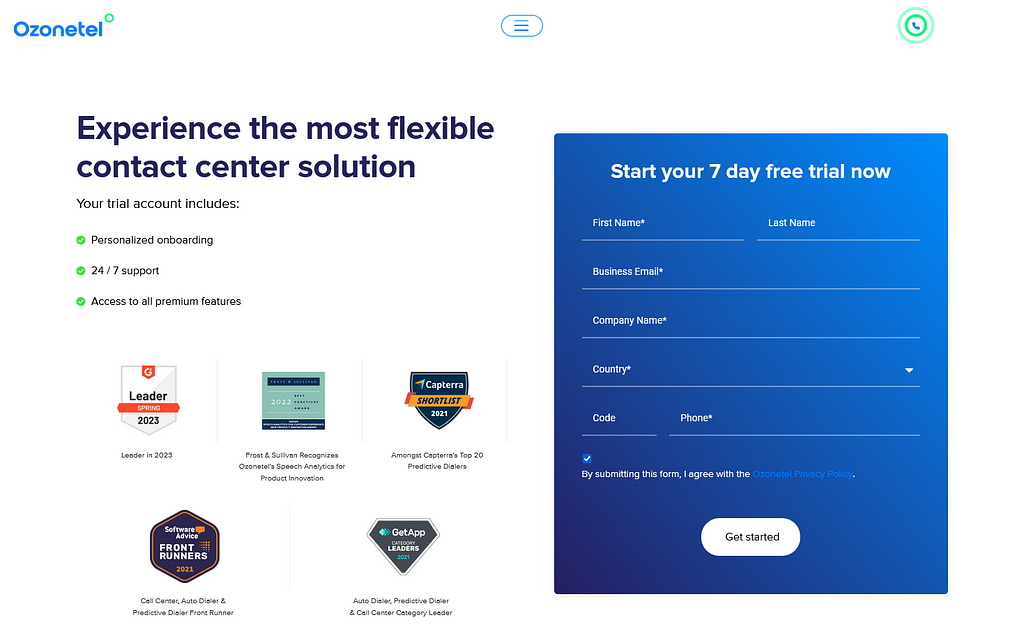- Resources
- How to Choose a Small Business Phone System for Customer Support?
How to Choose a Small Business Phone System for Customer Support?

The two things that are at a premium for small businesses are time and resources. The challenge, especially as you scale, is to meet customers’ needs while keeping the machine lean.
Often, what seriously peeves customers, and urges them to switch to a competitor’s offering is poor customer support.
Small businesses are not ignoring their customers by any means. They are often just scrambling to reach their newly evolved customer who is thriving in a busy, chaotic, internet-heavy, social-media-centric environment.
This has, for better or worse, vastly shifted business dynamics in all facets from Point of Sale (POS) to customer acquisition and retention. Today, customers can be reached through social media. Their cellphone, as opposed to the desktop (oh, the good old days!) is their lifeline. Customer needs are 24 x 7. And as a small business, you have many priorities too. Here’s a short list:
- Can your business phone system prevent long wait times for your customer?
- Can it ensure that customers don’t need to repeat information (the issue, the ticket, their id & other credentials, etc.) they’ve already given you previously?
- Can it alert you on missed calls and abandoned calls?
- Can customers connect to it from your website?
- Multi-channel customer communication.
- Customer Relationship Management.
- Growing & scaling your business & customer base.
- Managing operational & personnel costs.
- Profit optimization & ROI.
How, then, do you stay on top of it all?
Traditionally, small businesses have used phone lines to offer customer support and meet their customers’ business needs. While this can meet some business aspects, it has its shortcomings. They can be expensive, laborious, stifle employee flexibility, and offer limited automated workflows. For example, they lack CRM integration, which is critical for efficient customer support and retention. Besides, do customers really have the time or the inclination to talk or would they rather just troubleshoot in minutes with a chatbot? For small businesses, efficiency is key.
It is no doubt, a daunting task to seek and select the right technology-based solution that fits your business’s current and future needs. This is made more challenging and confusing in today’s era of easy access to massive amounts of information through a multitude of channels.
So, what should small business owners look for in a phone system? The answer lies in a scalable, economical, laborsaving, easy to use solution.
Here are 5 tips when looking for a business phone system:
TIP 1: Ensure cost efficiency.
As a small business, you need a tech solution that has minimal setup costs. Consider a cloud telephony solution. Thanks to software as a service (SaaS) options that are deployed in the cloud, all you need are headphones and an internet connection, making your infrastructural costs almost negligible.
TIP 2: Get multi-channel integration.
You need customer presence across channels – social media, email, text messages. You need a phone system that can work across these multi-media channels with capabilities such as SMS plug-ins, Facebook & Messenger integration, for easy real-time, seamless personal customer communication.
TIP3: Insist on CRM Integration.
As has already been established, customer needs are complex, immediate, varied and, multi-channeled. So, it would be a good idea to look for a phone system with good CRM integrations. Get a cloud telephony system that integrates with Zendesk, Freshdesk, Salesforce, SugarCRM and all other major CRM and ticketing applications. This would be a tremendous advantage in automating manual labor.
TIP4: Increase employee productivity.
Optimize for lull periods and busy ones. A cloud phone system can help you make efficient staffing decisions. It has in-built functionalities to track agent productivity, productivity reports (e.g. efficiency reposts, waiting times, etc.). By assessing call volumes, for instance, you can tweak your hiring and staffing needs (e.g. deploy additional staff during peak times only).
TIP5: Consider flexibility.
A cloud telephony system can also offer the flexibility of employing remote workers or work from home staff.
Bottomline: Small businesses don’t need to limit themselves.
Don’t look for a simple business phone system when you can access a complete contact center on your browser. Do yourself a favor: Get maximum bang for your buck by selecting a system that is low cost, scalable and laborsaving. Your customers will love it when you attend to their needs right away and provide the stellar customer service they deserve!







